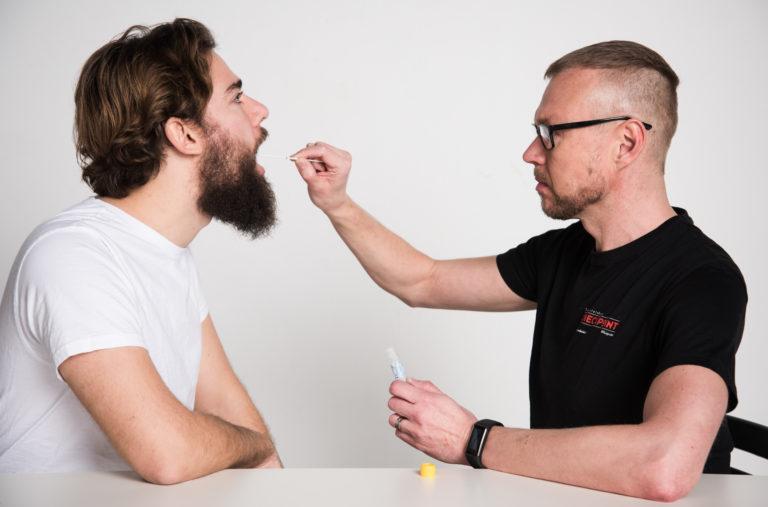Information about sexually transmitted infections (STIs)

Page last reviewed 20.3.2024
What should everyone know about STIs?
Sexually transmitted infections (STIs) are very common. In Finland, more than 30,000 people get an STI every year. The number of confirmed syphilis and gonorrhea infections has radically increased since 2022. Both HIV and other sexually transmitted diseases are often asymptomatic, meaning you might not have any symptoms even if you have an STI. All kinds of sexually active people can get STIs. Having an STI doesn’t make a person bad or dirty. There is a lot of unnecessary shame associated with STIs. This can lead to unnecessary fear and to people not getting tested. Getting an STI is not the end of the world, it is just one thing that happens in life.
STIs are usually caused by a bacteria or a virus. Some STIs are more common than others. Sexually transmitted infections can be transmitted through vaginal or anal intercourse, oral sex, or rimming (anal licking) when a condom or dental dam is not in use. In this section you will find more information on specific STIs, how they are transmitted, how they are tested and treated.
Testing and treatment for most STIs is free of charge at public health care in Finland
The symptoms of all STIs are treatable and most sexually transmitted infections are also curable. Testing and treatment of most STIs is free of charge in public health care in Finland. Only treatment of herpes and condyloma are not free. If you have had a situation where an STI could have transmitted, you should get tested for STIs. All sexually transmitted diseases may be asymptomatic or their symptoms may be minor.
If you get diagnosed with an STI, you need to tell your sexual partners to get tested too. During the medical treatment of the STI, you should not have sex. Even after your treatment, it’s recommended use a condom with every sex partner until you have been checked by control test.
How can I prevent sexually transmitted infections?
There are different options for preventing STIs. Check out condoms, lubricants and oral protectors here. PrEP medication is effective in preventing HIV infections. More information about PrEP can be found here. For many, regular STI testing is a great way to take care of their sexual health. You decide!
Where can I get tested for STIs?
- public health care centers
- STI clinics (venereal diseases outpatient clinics)
- occupational health care
- student health care
- private providers of health care and social services, private medical centers (chargeable)
- Hivpoint’s STI testing service Checkpoint
Testing practices vary by wellbeing services county. You can get the most up-to-date information on STI testing in your area by calling the area’s public health care center or looking for information on the wellbeing services county’s own website. In many areas, sexually transmitted disease tests can be accessed by booking an appointment online.
STI testing service at Hivpoint
Hivpoint’s STI testing service operates by appointment on Tuesdays. Once a month we offer walk-in testing without an appoinment. At Checkpoint STI testing service, it’s possible to get tested for chlamydia, gonorrhea, syphilis, and HIV. Chlamydia and gonorrhea tests are taken as a urine sample or as a rectal or throat swab according to what kind of sex you have had. Syphilis and HIV are tested from the blood, either with a rapid test or as a venous blood sample.
The Checkpoint testing service is primarily intended for asymptomatic people who have been at risk of contracting a sexually transmitted infection and have a high threshold to get tested at the public health care. The testing takes place at Hivpoint’s office in Kalasatama and is free of charge. Read more about our STI testing service, opening hours and onlice booking here.
Chlamydia
Risk of infection? Symptoms? Testing? Treatment?
Gonorrhoea
Risk of infection? Symptoms? Testing? Treatment?
Syphilis
Risk of infection? Symptoms? Testing? Treatment?
Condyloma (HPV)
Risk of infection? Symptoms? Testing? Treatment?
HIV
Risk of infection? Symptoms? Testing? Treatment?
Genital herpes
Risk of infection? Symptoms? Testing? Treatment?
Hepatitis B and C
Risk of infection? Symptoms? Testing? Treatment?
